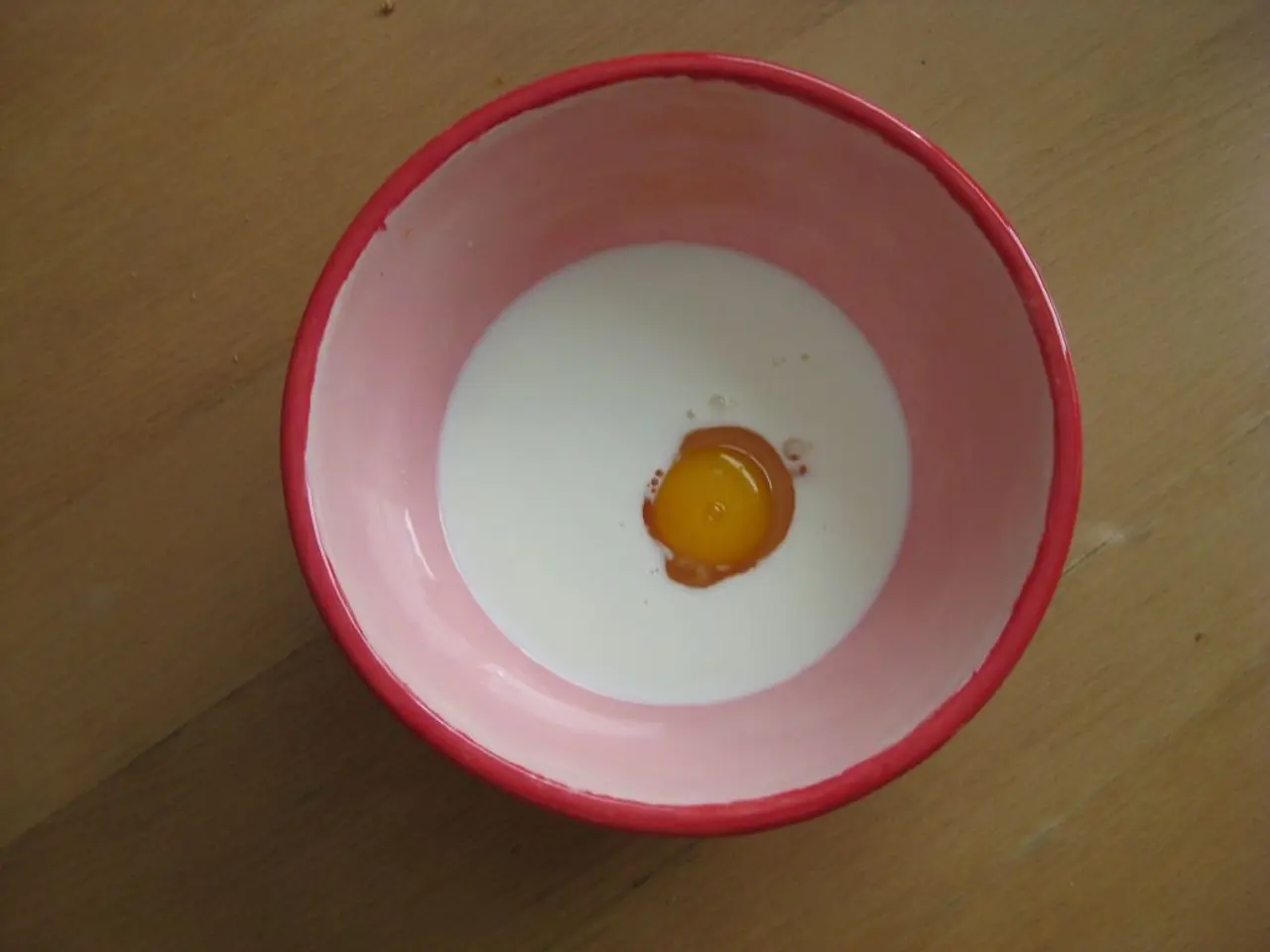Dairy's Impact on Gout Flare-ups: An Examination of the Connection Between Milk Consumption and Gout Attacks
In a recent development for individuals battling gout, new research suggests that low-fat or non-fat dairy products, such as skimmed milk, may be the most beneficial type of milk to consume, particularly for those with high blood pressure and those following the Mediterranean or DASH diets.
These dairy options are associated with lower serum uric acid levels, which can help manage gout symptoms. Both the Mediterranean and DASH diets emphasize including low-fat dairy while limiting saturated fats and red meats.
Regarding the recommended daily intake, specific amounts are generally guided by overall diet plans, which typically suggest moderate consumption of low-fat dairy as part of daily calcium and protein needs. While no exact daily volume for milk is universally prescribed specifically for gout, the DASH diet encourages incorporating low-fat dairy products as a key component to meet dietary targets, usually around 2–3 servings per day (a serving can be approximately 1 cup of milk or yogurt), balancing this with fruits, vegetables, whole grains, and lean proteins.
A 2021 research article looked at the use of skim milk powder containing G600 milk fat extract and glycomacropeptide, a type of protein, which improved joint pain and reduced gout flares over 3 months. This study adds to the growing body of evidence supporting the benefits of low-fat dairy for gout management.
Moreover, the Arthritis Foundation states that consuming low-fat dairy products may help lower uric acid levels and reduce the risk of gout flares.
Foods high in purines, such as organ meat, sugary drinks, candy, alcohol, high fructose corn syrup, red meat, and certain types of seafood and fruits, can lead to a build-up of uric acid in the body and cause gout flares. As such, it's important for gout patients to avoid these foods and opt for low-purine alternatives.
Lactose-free milk, nut milks, other nondairy alternatives, and soy milk are suitable for people with gout. Soy milk, in particular, may be beneficial as it has a negative link to high uric acid levels and gout risk.
Other dairy products, such as cheese, may also be beneficial due to the proteins they contain, like casein and orotic acid, which help lower uric acid levels in the body.
In conclusion, for individuals with gout following the Mediterranean and DASH diets, the recommended type of milk is low-fat or non-fat dairy products. These dairy choices may help lower serum uric acid and reduce gout flares. It's important to note that a nutritious, balanced diet, such as the Mediterranean or DASH diets, is key for managing gout. Following these diets not only recommends low-fat dairy but also encourages the consumption of a variety of fruits, vegetables, whole grains, and lean proteins, while limiting saturated fats and red meats.
Read also:
- Budget cuts at federal and state levels jeopardize advancements in fighting HIV and AIDS within Dallas County
- Strategies for Maintaining and Boosting Physical Activity as You Grow Older
- Understanding Prediabetes: A Precursory Condition to Diabetes
- Strategies for Strengthening a Nigerian Infant's Immune System







